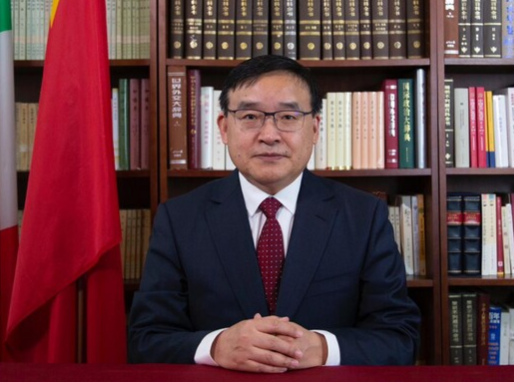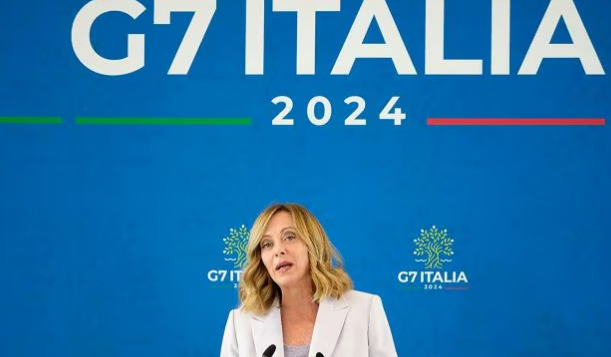2024-07-25
Relations between China and Italy have a long and rich history, which began with Marco Polo's epic voyage and developed through centuries of cultural, economic and diplomatic exchanges to the flourishing relationship of today. Briefly reviewing the history of the relationship between the two nations, it all began with the Venetian merchant Marco Polo, who travelled to China in the 13th century, describing his experiences in his famous book 'The Million'. His narratives opened the eyes of Europeans to China, stimulating curiosity and interest in this faraway country. Marco Polo's importance is inestimable even today, as the Chinese ambassador in Rome, Jia Guide, says: 'Marco Polo is known and familiar to everyone in China. He is one of only two foreigners in the relief of the 100 famous historical figures who influenced the development of Chinese history in the Chinese Millennium Monument'. It is impossible to leave out Jesuit Matteo Ricci and his missions to China in the 16th century, which united the hearts of the two peoples even more. After a period of difficult relations, starting in the 1970s, with China's opening-up policy, relations began to improve. From the 1990s onwards, relations between China and Italy intensified considerably. Trade exchanges have grown, with many Italian companies investing and continuing to invest in China and vice versa. In short, relations between the two countries have gone through different historical phases, evolving from initial and sporadic exchanges to structured and multilateral cooperation.

Jia Guide, Chinese Ambassador in Rome
This history is a testimony to the ongoing commitment of both sides to promoting mutual understanding and cooperation, a commitment that Italy wants to continue to promote in the future. In particular, spokesperson for this project is currently Prime Minister Giorgia Meloni. In one of her speeches, the Italian politician still cites the strategic partnership signed back in 2004 as the 'beacon' for the advancement of relations between the two countries. On the Chinese side, Chinese Ambassador to Rome Jia also affirms the importance of maintaining strong long-term relations based on friendship and continuous development: 'China and Italy, two great ancient civilisations, guided by the Global Strategic Partnership, can continue to support the 'Spirit of the Silk Road' based on the concepts of peace and cooperation, openness and inclusion, mutual learning and mutual benefit'. Numerous initiatives show the Italian government's intention to maintain strategic cooperation with China by increasing Chinese investment agreements. Furthermore, the Italian Prime Minister expressed his intention to increase Italian exports to China and emphasised the importance of resuming all channels of dialogue. Further evidence of the consolidation of China-Italy diplomatic relations during the Meloni government are high-level visits, such as Sergio Mattarella's visit to China planned for October 2024. In addition, new policies such as visa-free stays of up to 15 days for citizens of major European countries further foster dialogue between Beijing and Rome.
However, it's not all fun and games. As is normal, the two countries, while showing a constant interest in maintaining peaceful relations, have very different characteristics that, although fascinating, can sometimes come into conflict and generate misunderstandings. A concrete example is the issue of unfair competition raised by Prime Minister G. Meloni during the G7. "China is a big player, we want to pursue dialogue, even on a bilateral basis, but as is always done between honest people, we need to give each other rules to ensure, in particular, that companies operating in global markets can do so with the same rules: the free market is a great achievement, but for it to be so the precondition is that it is fair, that everyone has the same conditions and this is precisely the basis of dialogue'. These words follow the European decision to impose duties on Chinese electric cars, accusing Beijing of 'protectionism that stifles competition'. Meloni reiterated at the end of the G7 meeting in Borgo Egnazia: "At the G7 we wanted to keep the issues of the Indo-Pacific and economic security high, also to give a message to China: we are open to dialogue but our companies must be able to compete on equal terms in a free market based on rules". The resolute character of the Prime Minister is clear from her statements, emphasising the need to balance the interests of both countries. However, the coexistence of these interests in Meloni's policy, although possible, is complex to implement: she is determined to maintain a peaceful relationship with Beijing, but is inevitably conditioned by the European context in which she operates. The Italian government's recent decisions also reflect this diversity of interests at stake. On the one hand, relations with China remain flourishing, as demonstrated by the Italy-China business event on 12 April in Verona, attended by Chinese Minister Wang Wentao, and the opening of the last national holiday by Matteo Salvini. On the other hand, the dispatch for the first time of the Navy's Italian Carrier Strike Group, led by the aircraft carrier Cavour, to the gigantic Rimpac military exercises in the Pacific and the decision to withdraw from the Belt and Road Initiative have reassured Washington. Regarding the latter decision, it is worth making a few clarifications. In December 2023, Italy officially decided to leave the Silk Road. Foreign Minister Antonio Tajani explained at the Adnkronos forum that ‘the Silk Road is not our priority, we have seen that the Silk Road has not produced the hoped-for effects, on the contrary. Those who are not part of the Silk Road route have had better results'. Nor should we forget how the choice made four years ago by the Conte I government created friction for Italy with its American allies and NATO. However, it is clear to point out that despite this decision, non-participation in the Silk Road does not mean wanting to slow down bilateral relations: ‘Non-participation in the Silk Road does not mean that it is a negative action towards China, it means being able to continue to have excellent relations and work intensively on commercial aspects to strengthen our market presence. Prime Minister Meloni confirmed about a month later: ‘On the Silk Road I made a choice on the basis of the results that came in. A balance of trade with China was promised, but the balance became increasingly unfavourable [...] In my opinion it was an ineffective choice. That's why we don't need the Silk Road to have good trade relations with China, I want to honour the invitation to go to Beijing and more agreements can be made, our relations are thousands of years old. There is no punitive intent, it is just a choice, today we can increase agreements for Chinese investments that can be very interesting'. Indeed, Meloni announced at a press conference on 15 June that the Italian government had begun preparations for a visit to China in the coming weeks. In general, it is obvious that there is a clear interest in strengthening relations. However, Italy's recent volatile foreign policy decisions, such as the withdraw from the Belt and road initiative, make it difficult to predict exactly what will happen during the visit. Certainly, one question many Italians are asking themselves is how Meloni intends to represent them in Beijing.

Giorgia Meloni during G7 summit
To help us answer this question, an interview with two young Italians showed that, in general, the future of relations between China and Italy is viewed with optimism. Marco, 24, a law student living in Italy, and Luca, 24, an international science major currently living in China, shared their views on this internationally relevant topic. "I think relations between the two nations have improved significantly in recent years. We have seen an increase in economic and cultural exchanges, and I believe there are many opportunities for future collaboration,' Marco says. It is therefore clear that, although his perspective is based on a general knowledge of international foreign policy, he expresses confidence in future opportunities for Italy to consider China as a strategic partner. Addressing the question to Luca, however, one notices how he too confirms the existence of a strong mutual interest between the two countries: through his studies and experience in China, Luca in fact states that he has noticed an increasing appreciation of Italian culture among the Chinese. 'Since I have been in China, I have been able to observe at first-hand how the Chinese have a great admiration for Italian culture, including fashion and cuisine. Italian companies are finding more and more opportunities in the Chinese market,' says the young man with great enthusiasm. Similarly, after asking the two what they expected from the Prime Minister's upcoming visit to China, the answer was no less positive. 'I hope that Prime Minister Meloni's visit will best represent Italian interests and strengthen business ties,' says Marco, expecting a positive outcome. According to Luca, however, this should be a crucial opportunity to consolidate not only trade between the two countries, but also cultural and academic exchanges. He then adds in reference to the issue of unfair practices: 'There is great interest in China for Meloni's visit. I hope that Meloni can deal with this issue in a diplomatic way, maintaining a balance between strengthening trade relations and resolving existing issues." Marco and Luca's views highlight the complexity and importance of China-Italy relations. Despite their different perspectives - Marco, who lives in Italy and knows China through books, newspapers and government websites, and Luca, who lives in China and has made China his life - both share an optimistic and complementary vision: a bright future for the friendship between the two countries.
Prime Minister Meloni's visit to China represents a decisive moment. It will be interesting to see how Italian politics will navigate through the challenges and opportunities, keeping the link between two of the world's greatest civilisations strong. Italy has the opportunity to write a new chapter in its historic relationship with China, and the world is looking forward to this meeting.
Autore: Viola Garbagnati
Special statement: if the pictures and texts reproduced or quoted on this site infringe your legitimate rights and interests, please contact this site, and this site will correct and delete them in time. For copyright issues and website cooperation, please contact through outlook new era email:lwxsd@liaowanghn.com
 Recommended Reading Change it
Recommended Reading Change it

Submission mailbox:lwxsd@liaowanghn.com Tel:020-817896455
粤ICP备19140089号 Copyright © 2019 by www.lwxsd.com.all rights reserved
>